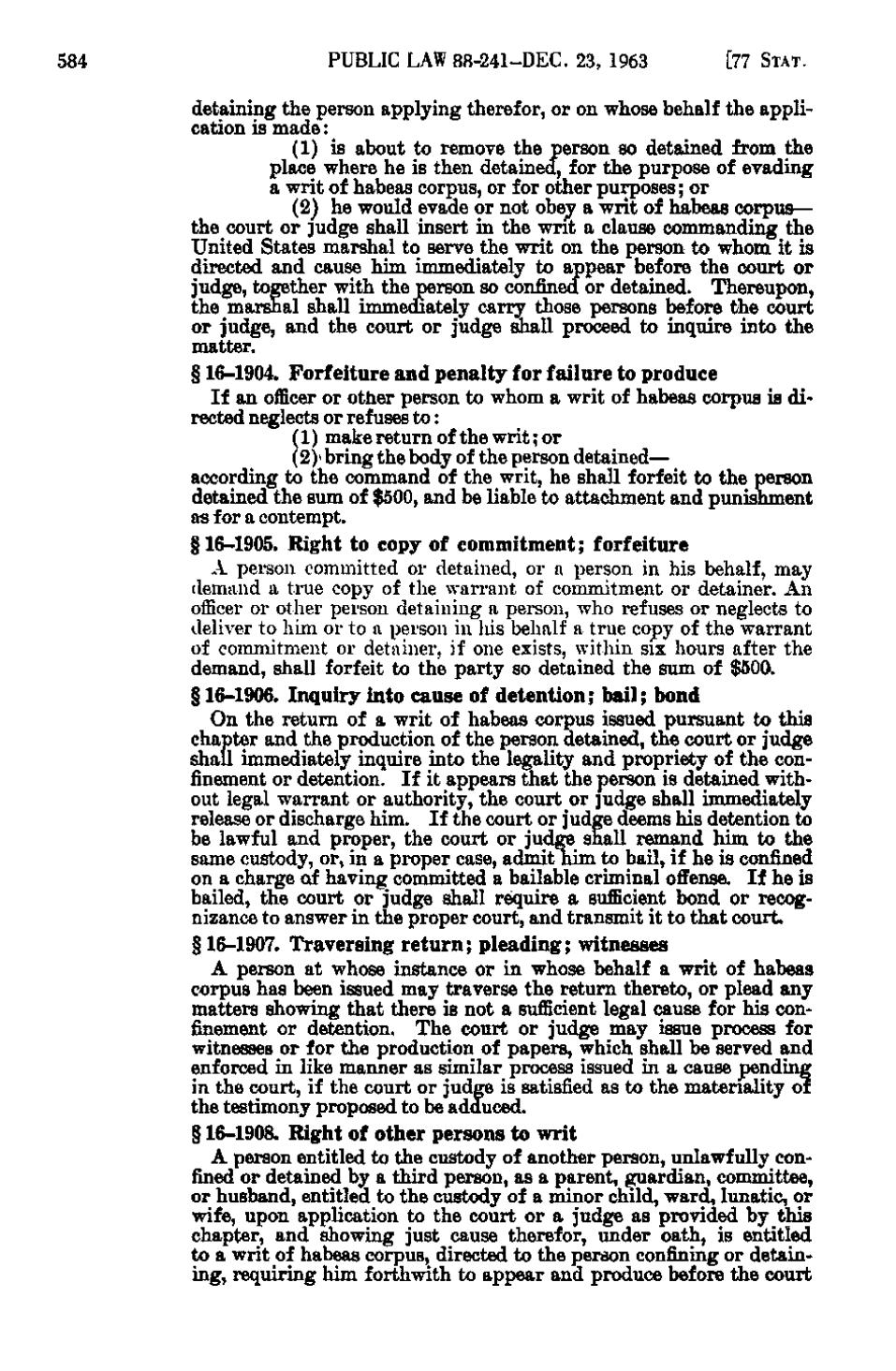584
PUBLIC LAW 88-241-DEC. 23, 1963
[77 STAT.
detaining the person applying therefor, or on whose behalf the application is made: (1) is about to remove the person so detained from the place where he is then detained, for the purpose of evading a writ of habeas corpus, or for other purposes; or (2) he would evade or not obey a writ of habeas corpus— the court or ]udge shall insert in the writ a clause commanding the United States marshal to serve the writ on the person to whom it is directed and cause him immediately to appear before the court or judge, together with the person so confined or detained. Thereupon, the marshal shall immediately carry those persons before the court or judge, and the court or judge shall proceed to inquire into the matter. § 16-1904. Forfeiture and penalty for failure to produce If an officer or other person to whom a writ of habeas corpus is directed neglects or refuses to: (1) make return of the writ; or (2 V bring the body of the person detained— according to the command of the writ, he shall forfeit to the person detained the sum of $500, and be liable to attachment and punishment as for a contempt. § 16-1905. Right to copy of commitment; forfeiture A person committed or detained, or a person in his behalf, may demand a true copy of the warrant of commitment or detainer. An officer or other person detaining a person, who refuses or neglects to deliver to him or to a person in his behalf a true copy of the warrant of commitment or detainer, if one exists,, within six hours after the demand, shall forfeit to the party so detained the sum of $500. § 16-1906. Inquiry into cause of detention; bail; bond On the return of a writ of habeas corpus issued pursuant to this chapter and the production of the person detained, the court or judge shall immediately inquire into the legality and propriety of the confinement or detention. If it appears that the person is detained without legal warrant or authority, the court or judge shall immediately release or discharge him. If the court or judge deems his detention to be lawful and proper, the court or judge shall remand him to the same custody, or, in a proper case, admit him to bail, if he is confined on a charge of having committed a bailable criminal offense. If he is bailed, the court or judge shall require a sufficient bond or recognizance to answer in the proper court, and transmit it to that court. § 16-1907. Traversing return; pleading; witnesses A person at whose instance or in whose behalf a writ of habeas corpus has been issued may traverse the return thereto, or plead any matters showing that there is not a sufficient legal cause for his confinement or detention. The court or judge may issue process for witnesses or for the production of papers, which shall be served and enforced in like manner as similar process issued in a cause pending in the court, if the court or judge is satisfied as to the materiality of the testimony proposed to be adduced. § 16-1908. Right of other persons to writ A person entitled to the custody of another person, unlawfully confined or detained by a third person, as a parent, guardian, committee, or husband, entitled to the custody of a minor child, ward, lunatic, or wife, upon application to the court or a judge as provided by this chapter, and showing just cause therefor, under oath, is entitled to a writ of habeas corpus, directed to the person confining or detaining, requiring him forthwith to appear and produce before the court
�
